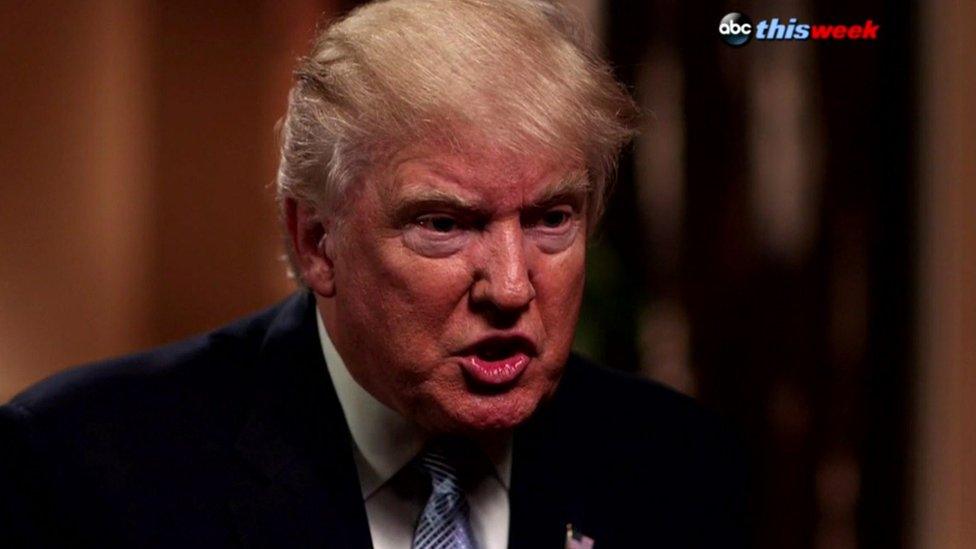Seven times ordinary people shook up political debate
- Published
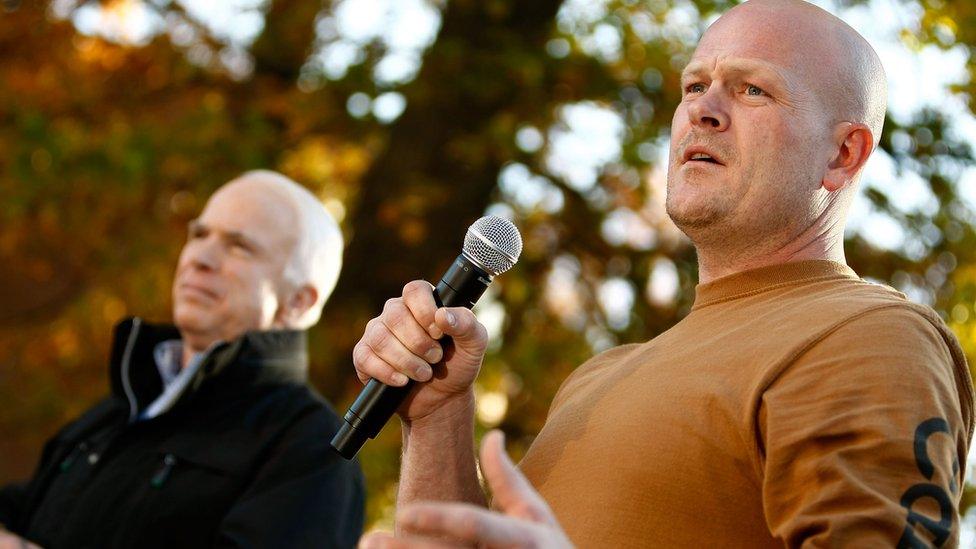
Joe the Plumber (r) with Republican presidential candidate John McCain at a campaign rally in 2008
What do an American plumber, a Greek pensioner and a young British girl have in common? One answer is that they have all stolen the limelight from politicians at key moments, disrupting election campaigns.
More often at such times, the stream of political advertising and set-piece speeches flows uninterrupted and can leave voters feeling powerless or disconnected.
But every so often, as these cases show, ordinary people spring to wider attention, knocking politicians off balance.
Joe the Plumber
Joe the Plumber, whose real name was Samuel Joseph Wurzelbacher, confronted Barack Obama, external on his tax plans during the 2008 US presidential election campaign after the Democratic Party candidate said he would raise taxes for businesses generating revenue of more than $250,000 a year.
Mr Wurzelbacher became the centre of a media frenzy when Mr Obama's Republican rival John McCain seized upon "Joe the plumber's" complaint of being an ordinary man chasing the American dream and being knocked back.
Mr McCain mentioned "Joe the plumber" multiple times during the final presidential debate with Mr Obama.
Reports later emerged that the state of Ohio had been forced to claim unpaid taxes from Mr Wurzelbacher, who did not have a plumber's licence.
In 2012, Mr Wurzelbacher ran as a Republican to represent Ohio in the House of Representatives, but lost to the Democratic candidate.
Jennifer's Ear
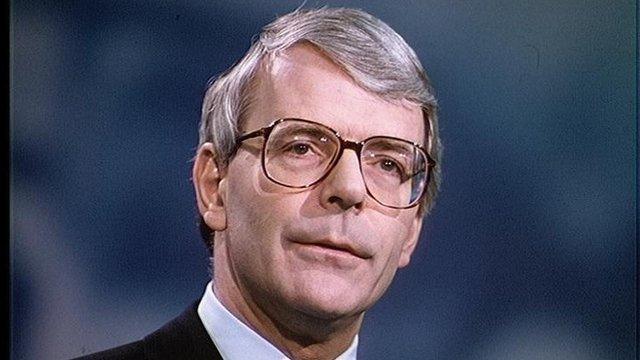
John Major won an unexpected majority in the 1992 election
In 1992, as Britain prepared to vote in a general election, Labour politicians drew attention to the case of a child, Jennifer Bennett, who was waiting for an ear operation. Their intention was to brand the Conservative government with failing to invest in and properly manage the National Health Service.
But the election broadcast backfired when Jennifer's surgeon denied Labour's claims. For the next three days, the media focused on the girl's case, rather than the Labour party's accusations of Conservative failings.
It was also discovered that Jennifer's grandfather was a staunch Conservative, who had leaked information about the broadcast to his own party before it was aired.
The "War of Jennifer's Ear" appeared not to work to Labour's advantage and Conservative John Major was returned to power.
Brown's 'bigoted woman'
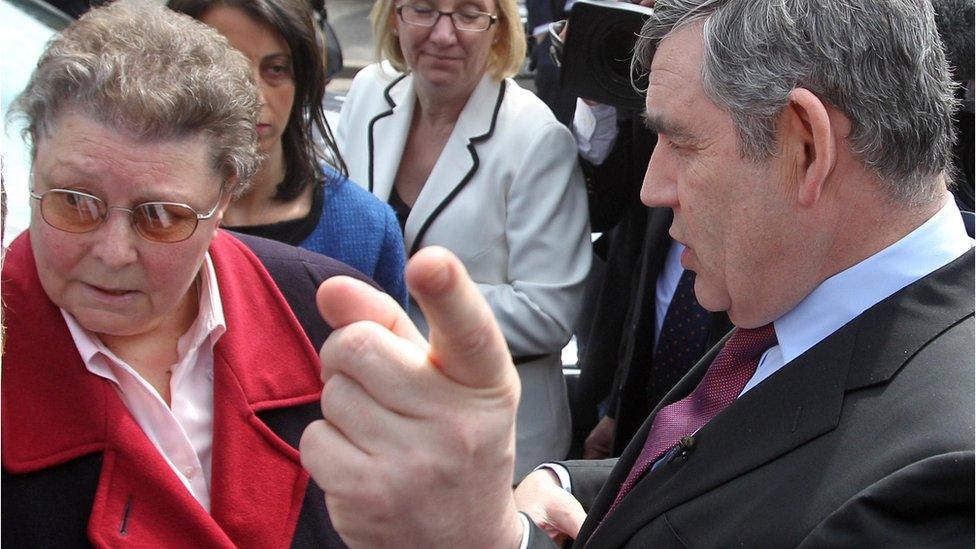
Gordon Brown met Gillian Duffy during the general election campaign in 2010
In another British election campaign, in 2010, then Prime Minister Gordon Brown was caught on microphone, external, describing a voter he had just spoken to as a "bigoted woman".
Sixty-five-year-old Gillian Duffy had challenged Mr Brown on immigration and crime.
As he got into his car, the prime minister was still wearing a broadcast microphone and was heard to say: "That was a disaster - they should never have put me with that woman. Whose idea was that? It's just ridiculous... She's just a sort of bigoted woman that said she used to be Labour."
Mr Brown later apologised to Mrs Duffy but the media consensus was that the damage had been done. He lost the election and was replaced as prime minister by David Cameron.
Khizr and Ghazala Khan
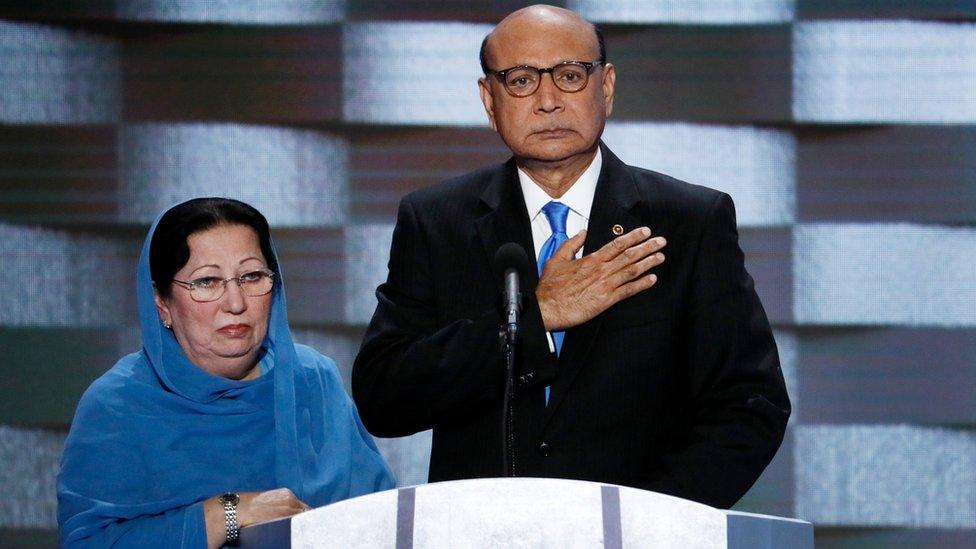
Khizr and Ghazala Khan at the US Democratic National Convention
Khizr Khan shot to prominence when he spoke at last month's US Democratic National Convention about his son, a Muslim-American soldier who was killed in Iraq.
He denounced Republican presidential candidate Donald Trump, who he said had consistently smeared the character of Muslims.
Mr Trump responded by saying Mr Khan's wife, Ghazala, had "nothing to say" and "maybe she wasn't allowed to have anything to say" referring to the fact she had remained silent during her husband's speech.
Mrs Khan did have something to say. Writing in the Washington Post, external, she said: "When Donald Trump is talking about Islam, he is ignorant. Donald Trump said he has made a lot of sacrifices. He doesn't know what the word sacrifice means."
Although it is too soon to tell quite what political impact the Khans' intervention, and Mr Trump's response, may have, they continue to occupy US media attention.
Barcelona's activist mayor
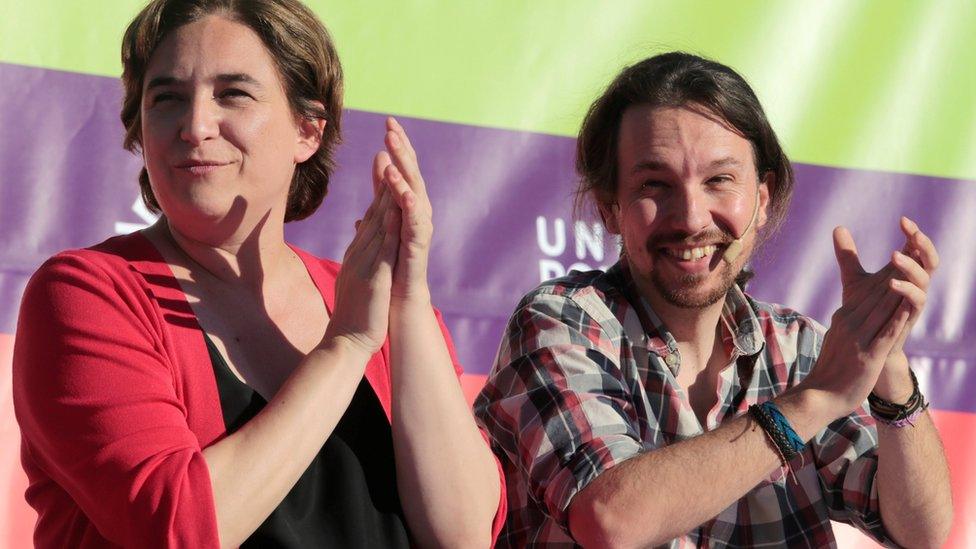
Ada Colau (L) campaigning for the general election in June 2016 with Podemos leader Pablo Iglesias (R)
A Barcelona native who grew up under the final years of General Franco's rule, Ada Colau made her name as an activist campaigning for people who could not pay their mortgages.
She filled the headlines when she called a banker a criminal at a parliamentary hearing into Spain's mortgage crisis, and her following on Twitter shot up from 8,000 to 100,000.
After the hearing, she formed the Platform for People Affected by Mortgages (PAH), to challenge Spain's draconian mortgage laws after a number of indebted homeowners committed suicide.
Later, she secured the backing of anti-austerity, left-wing party Podemos and became a politician herself, winning election as mayor of Barcelona in 2015.
Athens unrest
The BBC's Mark Lowen: "As you walk around the streets of Athens and beyond you can see the social fabric tearing"
A 77-year-old Greek pensioner, Dimitris Christoulas, sparked protests across Athens when he shot himself dead outside the Greek parliament in April 2012 in response to strict austerity measures.
He accused the government of cutting his pension and in a note he left behind, he said: "I see no other solution than this dignified end to my life, so I don't find myself fishing through garbage cans for my sustenance."
Suicide and depression rates steadily increased in the run-up to elections.
After the incident, Antonis Samaras, head of the conservative New Democracy party, said politicians must do more to "help Greeks escape from despair". Two months later, he secured a narrow victory in elections.
'Refugees welcome'
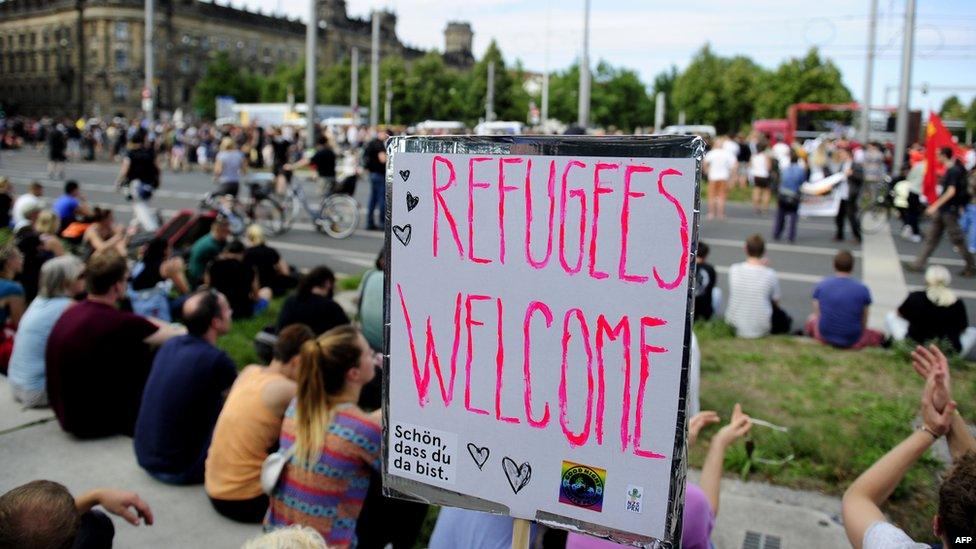
Although it did not alter the course of an election, the widely published photograph of Alan Kurdi, a Syrian boy whose body washed up on a Turkish beach, challenged the European Union to relax restrictions on migrants and asylum seekers.
The Refugees Welcome hashtag, discussing Germany's relaxation of restrictions, was used in online campaigns and gained thousands of tweets.
And a petition on the British parliament's website gained 150,000 signatures.
Alan's aunt, Tima Kurdi, said the photo of her tragically drowned nephew saved thousands of lives.
"It was something about that picture," she said. "God put the light on that picture to wake up the world."
- Published1 August 2016
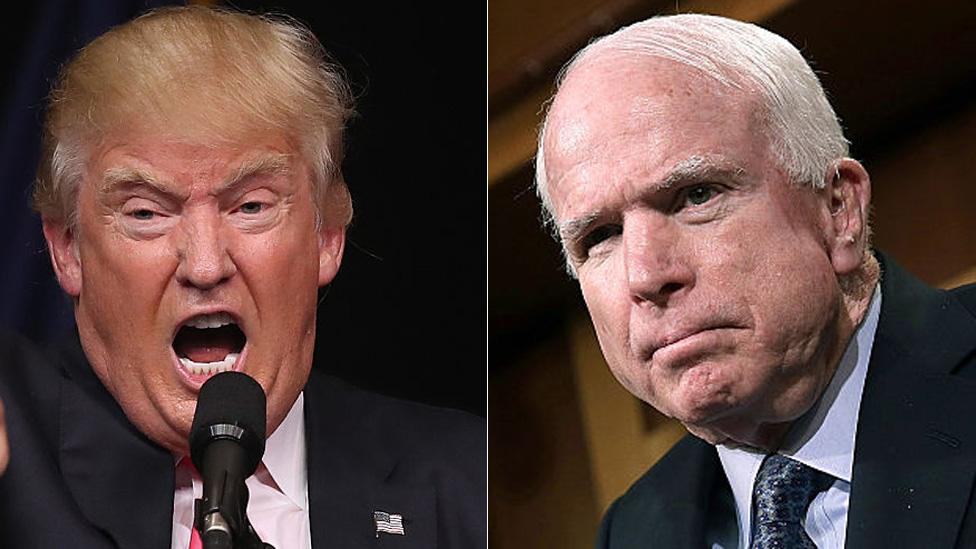
- Published31 July 2016
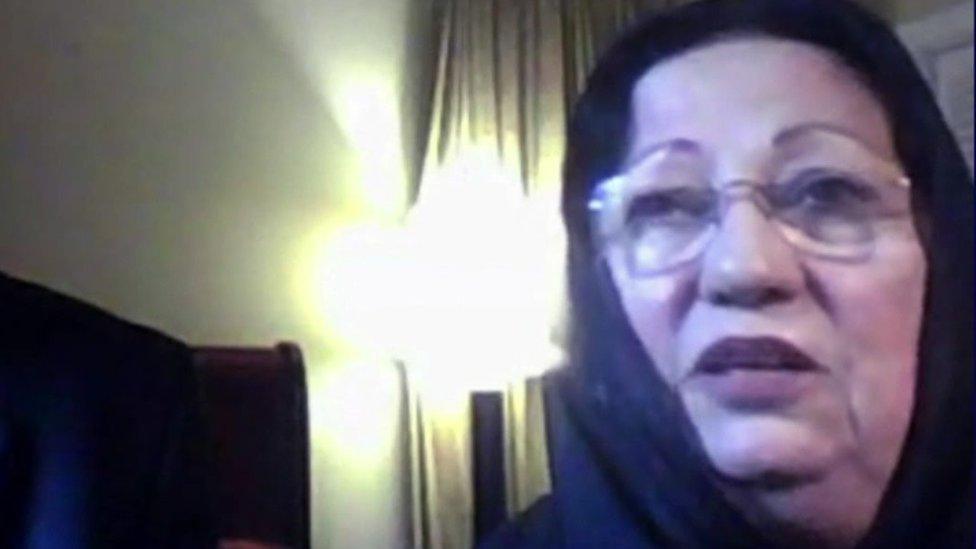
- Published31 July 2016
